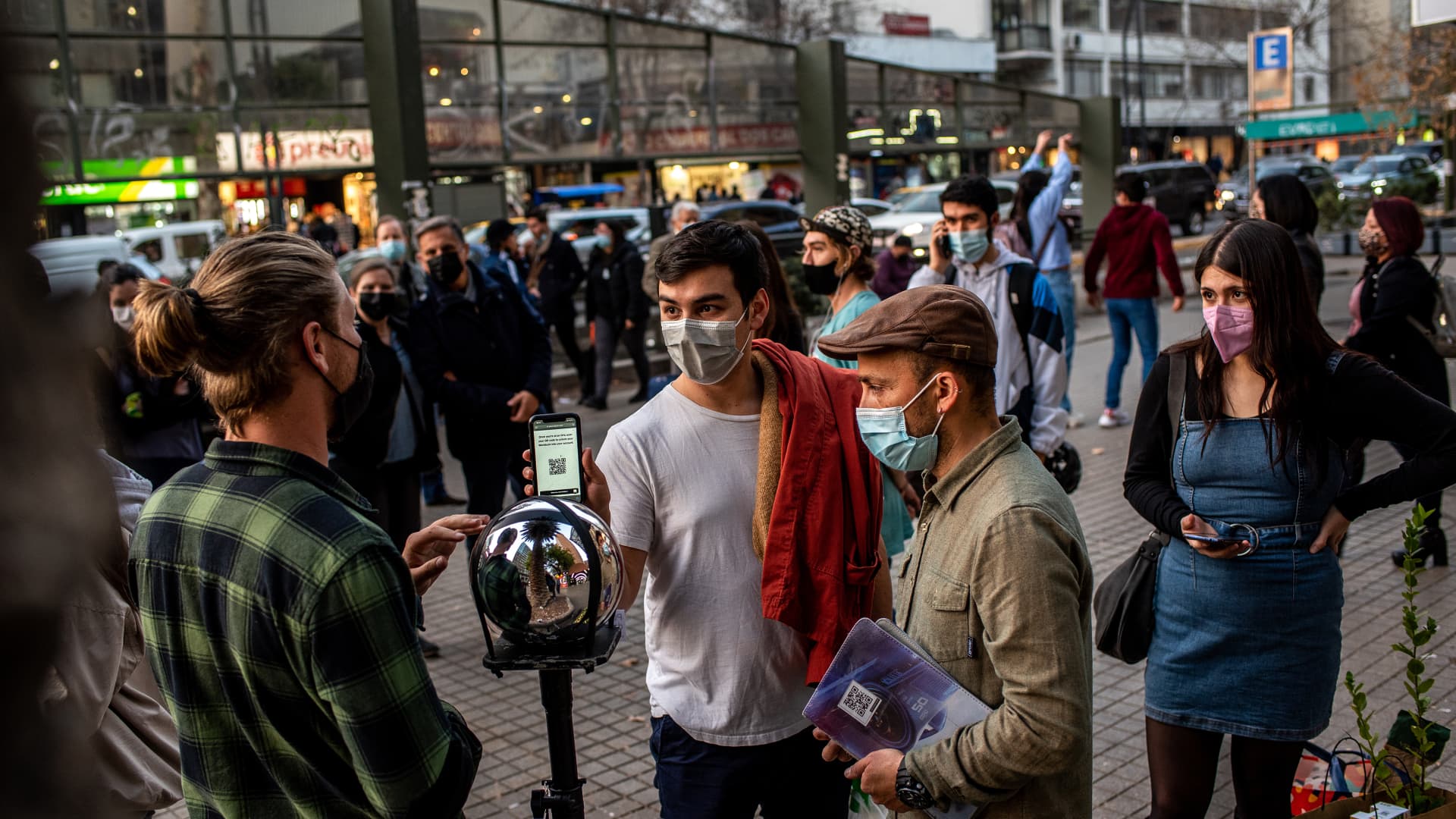Over the past year, Keneth Byarugaba has been employed as a runner for Worldcoin in Uganda. His primary responsibility is to persuade as many individuals as possible to scan their eyes into a large metallic orb in exchange for approximately $60 worth of cryptocurrency. These runners, who receive a commission based on the number of Ugandans they recruit, position themselves in shopping malls, universities, and on sidewalks, aiming to convince passersby to trade their biometric data for a new type of digital identity called a World ID.
Byarugaba, who acquired his skill for engaging with strangers during his time as an Uber driver, states, “I knew I had the qualities they needed because this job is similar to marketing where you have to educate people about something and pique their interest — and that’s something I excel at.” After completing the application and interview process, Byarugaba was selected as one of 500 recruits. Through a series of trainings and examinations on blockchain and marketing, his class was narrowed down to around 200 employees. Worldcoin’s ultimate goal is to establish itself as a well-known brand in Uganda.
Byarugaba and his colleagues are promoting the concept of being part of a unique global economy, where an iris scan grants access to universal basic income, online banking, and a streamlined method of bill payment through a new form of virtual currency. The narrative is captivating and appears to be effective, with Worldcoin claiming that over 2.2 million people have signed up since its initial launch in late 2021. However, the organization’s ambition extends to scaling up to 2 billion people.
Nevertheless, governments have expressed concerns over the biometric enrollment process and potential violations of national data protection laws. Some prospective applicants are cautious about the aggressive evangelism associated with the product. Namureba Abel, a veteran in the crypto industry, remarks, “At first, it just seemed like a cool, fancy ball, but I later discovered that it was collecting biometric data from people.” Abel further elaborates, “The excessive focus on marketing and user acquisition made it appear like a scam. They were everywhere, in every mall in Kampala.”
Peter Mwangi, a supporter of emerging tech in the digital asset sector, recalls his experience with Worldcoin in Nairobi. While initially intrigued by the opportunity to receive free tokens, Mwangi began questioning the potential consequences of sharing personal biometric data, stating, “When I’m scanning my face, I’m also internally asking myself, ‘What will they do with all this data?’ There’s a sense that they are taking too much from you.”
Similar concerns are echoed by Muvya Muthama, another individual who works for Yellow Card. Though initially intrigued by the use of proof-of-personhood and blockchain technology, Muthama found the concept of collecting biometric data for decentralized identity purposes to be somewhat dystopian. He states, “I saw they were mostly targeting third-world countries for data collection, and alarm bells started ringing. I don’t believe the majority of people in these countries are aware of data privacy.”
The allure of free Worldcoin tokens and monetary incentives is a factor that has enticed individuals to sign up without fully understanding the potential risks associated with sharing their data. Mwangi notes that many individuals he spoke to were more interested in receiving the coins rather than considering the implications of data privacy.
Worldcoin, valued at $3 billion, aims to sign up the global population for a decentralized form of identity through the concept of proof-of-personhood. This involves validating the identity of each individual on the planet through biometric capture and connecting it to a blockchain-based virtual ID. The company refers to the World ID as a “digital passport” that allows users to prove their uniqueness while remaining anonymous. According to Worldcoin, this ID could be used for seamless website logins without divulging personal information and could potentially facilitate nationwide voting, online banking, and e-commerce.
While digital identity management company Okta and social media app Discord have already integrated World ID into their platforms, the organization envisions broader adoption in various sectors. World ID’s self-custody feature, which ensures privacy and control over personal information, is also a significant aspect of the platform.
Worldcoin, spearheaded by Sam Altman, aims to combat the growing issue of online impersonation and fraud. Altman, known for his involvement in OpenAI and ChatGPT, believes a unique online persona can help mitigate these problems and create a virtual world that closely aligns with reality. By using iris scanning technology, Worldcoin can accurately differentiate between humans and bots, assigning a singular World ID to each individual.
In conclusion, Worldcoin’s approach to biometric data collection and decentralized identity has sparked both intrigue and concern. While some individuals see the potential benefits of a secure digital identity, others worry about the privacy implications and the aggressive marketing tactics employed by the organization. As Worldcoin continues to expand its user base, the conversation around data privacy and digital identity will undoubtedly persist.
Denial of responsibility! VigourTimes is an automatic aggregator of Global media. In each content, the hyperlink to the primary source is specified. All trademarks belong to their rightful owners, and all materials to their authors. For any complaint, please reach us at – [email protected]. We will take necessary action within 24 hours.


